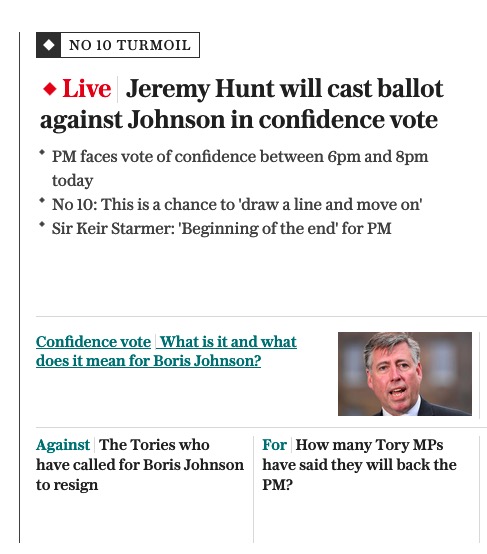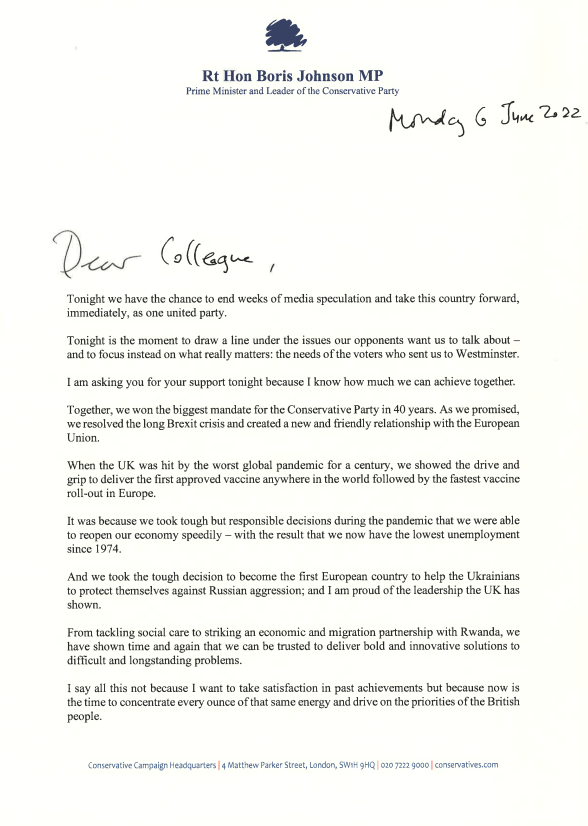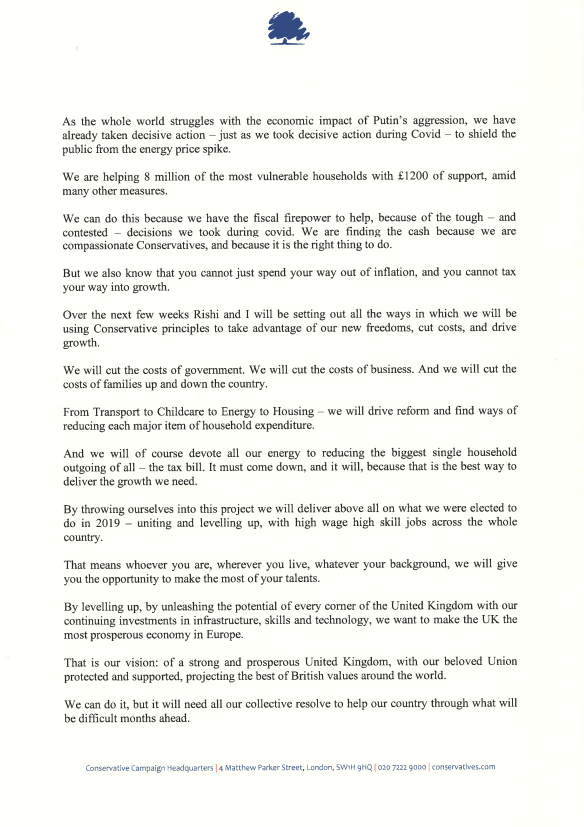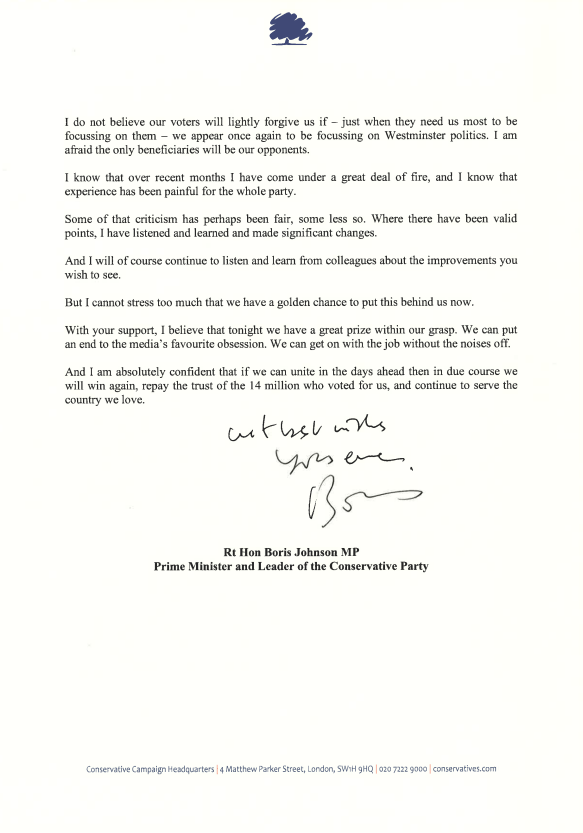Tory rebellion triggers ‘no confidence’ vote over Boris Johnson
Sir Graham Brady, chairman of the Conservative backbench 1922 Committee, announced in a statement Monday morning that 54 MPs had submitted letters to the Committee, the required threshold to trigger a vote of confidence in the Prime Minister.
The vote will take place tonight, between 6 and 8 p.m.
Publications were divided in perspective: Tory rebellion – particularly Jeremy Hunt’s announcement that he will vote against Johnson – means they are not fit to govern vs Tory rebellion is an opportunity to refresh the party.
Left leaning publications ran pieces highlighting how the Tory rebellion is an example of the party’s instability in government. Others ran accompanying speculation on the vote’s outcome, a display of political preference, discussing who would replace Johnson.
Boris Johnson to face no-confidence vote today as scores of Tory MPs call on him to go
Who are the main contenders to replace Boris Johnson?
Boris Johnson sends desperate begging letter to MPs as he prepares for showdown meeting with tories ahead of do-or-die vote tonight
Mirror
The letter is below:
Right leaning publications either shunned the in-party rebellion, or covered to the reality of the vote by considering how a successful Tory rebellion against Johnson could reignite belief in the Conservative party and enable them to regain votes and support in the lead up to the next election.
Plotting Tories goad Boris that a confidence vote is ‘imminent’
Following Sir Brady’s announcement, the headline was changed to:
Boris battles to cling on as rival Jeremy Hunt says he will vote AGAINST the PM in confidence ballot TODAY and anti-corruption tsar QUITS: Rebels ignore premier’s plea to ‘draw a line’ under Partygate revolt as civil war rips Tories to shreds
Jeremy Hunt to vote against Boris Johnson in confidence vote
Jeremy Hunt has called on Tory MPs to vote against Boris Johnson in tonight’s vote of confidence saying that fresh leadership is required if the Conservatives are going to retain power at the next election.
The Telegraph, though traditionally more right-leaning, similarly provided more impartial coverage, breaking down what the vote means and who within the party are for or against Johnson.

The Telegraph



















